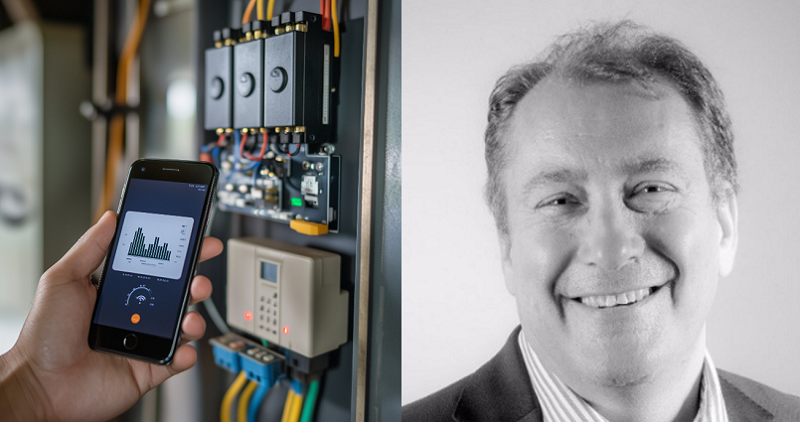Emerging issues for SMEs and IP audits
In today’s connected world, the normal standard commercial practices of obtaining warranties and indemnities may not apply. Robert Pocknell highlights some of the complexities of SEP licensing and the commercial risks faced by many SMEs.
Standards are everywhere in today’s connected world – in phones, watches, smart meters, smart energy, smart healthcare, robotics and many, many more. Connectivity is a part of everyday life and requires a common understanding of interfaces across products from multiple companies and, in order to achieve this, industry players cooperate through Standards Development Organisations (‘SDOs’) to agree specifications and standards. Standard Essential Patents (‘SEPs’) are patents that must necessarily be infringed when using, marketing, buying or selling a product that is compliant with a standard, and in order to foster widespread adoption of the standard, companies voluntarily commit to license their SEPs on fair and reasonable and non-discriminatory (‘FRAND’) terms to companies that want to license-in their SEPs. Debates and court cases continue to refine what ‘fair and reasonable’ means and what ‘non-discriminatory’ means.
With the advent of the Internet of Things, there are billions of connected devices using standards, and tens of thousands of SMEs are developing, manufacturing, buying and selling connected devices. In that context, the UK Intellectual Property Office (’IPO’) made two important announcements in July this year:
- The first was to announce its new financial support scheme, IP Advance. Developed following a review of the IPO’s support for SMEs and delivered exclusively through the IPO’s regional partners, the scheme provides support and advice to eligible SMEs to help them better understand their IP, develop an IP strategy, and where appropriate, to support the SME to implement that strategy.[1]
- The second was to launch its SEP Resource Hub.[2] The Hub aims to provide a summary to UK businesses on how to navigate the complex SEP ecosystem, and provides some guidance on technical standards and SDOs, SEP licensing, and dispute resolution and remedies in SEP licensing.
The announcements come at an important time for SMEs that are involved in developing, manufacturing, buying or selling products compliant with standards because there is a minefield of legal issues and commercial risks to manage, many of which they may not be aware of.
In normal commercial practice, buyers of components will obtain the necessary IP licences to sell products using those components and will expect to receive common form IP warranties and IP indemnities. However, in today’s connected world, the normal standard commercial practices of obtaining warranties and indemnities may not apply as many SEP holders refuse to grant patent licences to those that request them. This means that SMEs may be buying components that do not have the necessary IP rights to develop and sell on their products; that in turn exposes the SME to claims of infringement by the SEP holder, and the risk of injunctions, and potentially to claims that may be made by the SME’s customer if that customer is approached by the SEP holder.
Attorneys advising companies that buy components with wireless connectivity, or that use audio or video standards, need to advise those companies to undertake more than normal due diligence to ask their suppliers whether they actually have the necessary patent licences to use the standards, ask whether they have tried to get a licence, and consider what the financial impact might be if the SEP holder seeks a licence from the SME, or the SME’s customers.
Attorneys advising SMEs that are seeking investment will need to be aware of these issues so that the issues can be identified to potential investors. Similarly, attorneys advising companies that acquire SMEs should consider the risk of potential claims that may be made against the target company, i.e., for past sales, given that claims for past infringements may go back more than six years.
Despite the complexities of SEP licensing, SMEs may also want to consider participating in standardisation; an SME might want their product or technology to become part of a standard, where there may be opportunities to benefit from a larger addressable market. Participating in standardisation and creating a standard for a product may well involve the SME committing to license their patents that are essential to use SEPs to any user of the standard on FRAND terms, subject to reciprocity. Alternatively, SMEs may want to market their product or technology so that it becomes an industry must-have, rather than making it part of a standard.
With some of these issues in mind, advisers carrying out IP audits under the IP Advance scheme, or under a broader audit, might want to ask a number of additional questions of the SME to try and raise awareness of SEPs and some of the technical and commercial issues to consider. These could include the following:
A . Use of technical standards
1 . Does your company use standards in its business or in any of its products? Does your company buy or sell products that comply with any technical standards?
2 . If you do sell products that comply with technical standards, which standards are they? And who administers the standard – e.g. BSI (British Standards Institute), ETSI, IEEE, ITU-T?
3 . Do you buy-in any components which comply with technical standards?
4 . Do you need to use all features of the technical standard in your products? Are there alternative products that can meet your requirements, but that will be less expensive from a patents perspective?
5 . Do your suppliers give you warranties and indemnities that the products do not infringe the IP rights of others and/or that they have the right to use SEPs and other intellectual property relating to the technical standards the products comply with? Have they confirmed which SEP licences they already have, and which additional SEP licences they may also need?
6 . If you develop or sell products compliant with technical standards, and if your suppliers cannot show you that they have the licences to SEPs:
-
-
- Have you taken into account the cost of potential SEP licences when selling your products?
- Have you set aside a financial provision for the future cost of licences?
- Have you researched who the SEP holders are for the particular standard?
-
7 . Have you checked whether your customers may already have licences to any SEPs?
8 . What warranties and indemnities, and limitations of liability do you need to consider in your terms and conditions with your customers? Should SEPs be excluded?
9 . Have you signed any non-disclosure agreements with any SEP holders? Can you discuss the terms of the proposed SEP licences with your suppliers and customers, and with investors or potential investors?
B . Participation in standardisation
1 . Do you participate in technical standardisation? If so, which SDOs have you joined? Are you aware of the SDO’s intellectual property rights policy?
2 . Do you have any technology or patents that may be essential for third parties to use to comply with the technical standard?
3 . Should you consider participating in standardisation?
This list of questions is not exhaustive, and practitioners may have others depending on the type of business they are auditing. The IPO is currently considering an update to the IP Advance guidance for IP professionals to raise awareness of SEPs, but practitioners may in any event wish to consider exploring in more detail the topic of SEPs as they become relevant to more and more UK businesses.
About the author
 Robert Pocknell is a solicitor specialising in advising companies on the licensing of SEPs; he has acted for SMEs and multinationals on SEP licensing for more than 20 years. He can be contacted on 07957 621641.
Robert Pocknell is a solicitor specialising in advising companies on the licensing of SEPs; he has acted for SMEs and multinationals on SEP licensing for more than 20 years. He can be contacted on 07957 621641.
_________________________________________________________
[1] https://www.cipa.org.uk/news/uk-ipo-launches-new-sme-financial-support-scheme-ip-advance/
[2] https://www.gov.uk/government/collections/seps-resource-hub



